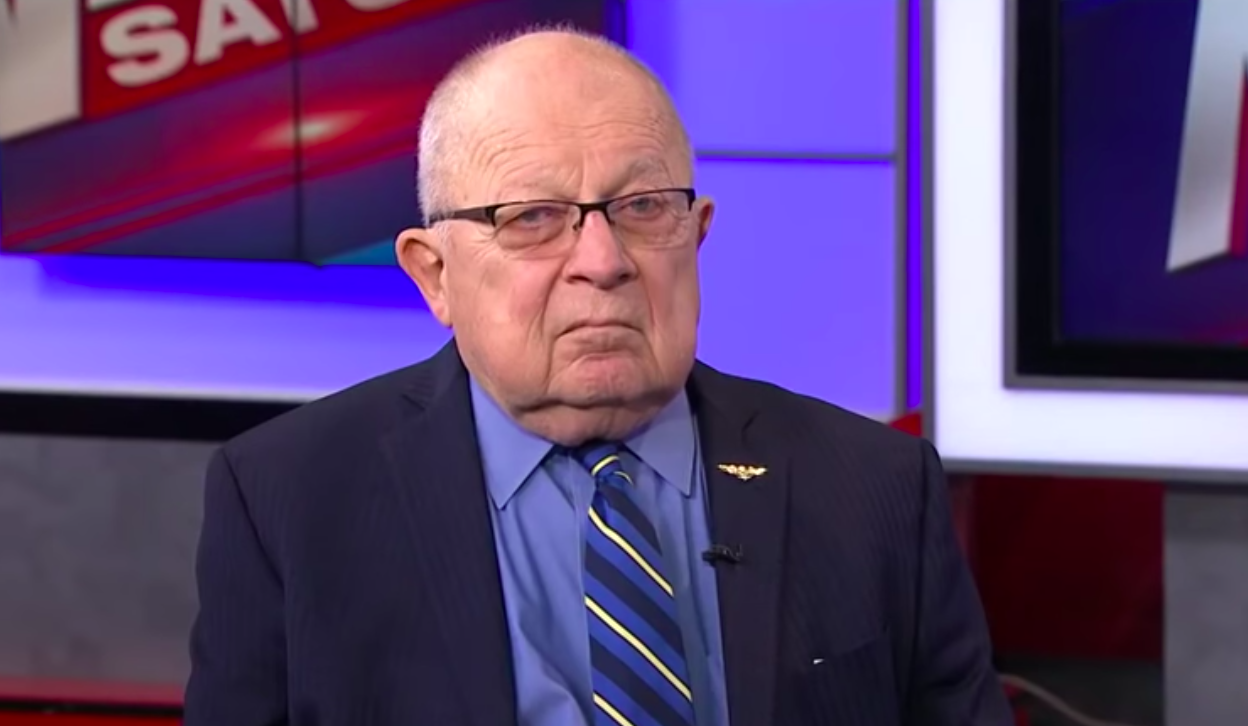Disney Plus’s ‘Boston Strangler’ follows the story of Loretta McLaughlin and Jean Cole, the investigative journalists for Record American who reported extensively on the Boston Strangler case. McLaughlin was the first to make a connection between the murders and, along with Cole, became involved in tracking down the killer. After thirteen women are killed, Albert DeSalvo confessed to being the murderer. But before that, he got F. Lee Bailey as his lawyer.
Now in the film, Bailey’s involvement completely restructures the police and the prosecution’s approach toward the case. The lawyer maneuvers things in such a way that despite DeSalvo’s confession, he is not convicted of the murders. While his role in the movie, played by Luke Kirby, is a small one, he makes a huge impact.
Who was F. Lee Bailey?
Francis Lee Bailey was born in Waltham on June 10, 1933. His father was a newspaper advertiser, and his mother was a schoolteacher. In 1950, he enrolled at Harvard but left at the end of his sophomore year to join the military, where he trained as a Marine pilot. He also volunteered for the legal staff at Cherry Point Marine Corps Air Station in North Carolina. When he came back, he enrolled in Boston University and got his law degree in 1960. Before officially becoming a lawyer, he also opened a private detective agency and acquainted himself with the lie-detector test.

Over the course of his career, he became infamous for representing people caught up in controversial cases. The most well-known case he handled was O.J Simpson’s, whom he helped get an acquittal in a double-murder case. He also represented Albert DeSalvo of the Boston Strangler case; Patty Hearst, the newspaper heiress who went to prison for robbing a bank; Captain Ernest Medina, who was charged in the case of My Lai massacre in Vietnam; and Sam Sheppard, the neurosurgeon arrested for murdering and dismembering his wife.
While Bailey succeeded in keeping most of his clients out of jail, he also faced some legal challenges of his own. In 1982, he found himself in trouble when he was charged with drunk driving but was later acquitted. In 2001, he was disbarred for misconduct in Florida and then in 2003 in Massachusetts. The Florida Bar accused him of seven counts of misconduct in handling the stock of his former client, Claude Duboc, a convicted drug dealer. The stocks were worth nearly $6 million. Previously, in 1996, he’d spent around six weeks in federal prison for being in contempt of court when he refused to turn over the stocks.
According to the court: “Bailey has committed multiple counts of egregious conduct, including offering false testimony, engaging in ex parte communications, violating a client’s confidences, violating two federal court orders and trust account violations, including commingling and misappropriation.” In 2013, he started practicing law in Maine. In 2016, he filed for bankruptcy, citing the federal tax debt of almost $5.2 million.
Apart from his law career, Bailey also dipped his toe in the literary and TV world. He hosted a celebrity interview show called ‘Good Company’ in the 1960s and appeared in the 1980s TV series, ‘Lie Detector.’ He also wrote a novel and several non-fiction books. He was an avid pilot and owned a jet. He was the president of Enstrom Helicopter Corporation and even owned an airport and an air charter service at some point.
F. Lee Bailey Passed Away at Age 87
F. Lee Bailey died at 87 on June 3, 2021, at a hospice center in Atlanta. He was last known to be a resident of Yarmouth, Maine, where he worked as a consultant. He lived with his partner, Deborah Elliot, a beauty salon owner. Bailey had been divorced three times with Florence Gott, Froma Portnoy, and Lynda Hart. His fourth wife, Patricia, died of a terminal disease in 1999. He had two sons from his first marriage, Bendrix and Brian, and one, Scott, from his second.
I lost a great one. F Lee Bailey you will be missed. pic.twitter.com/6s8JI3OQVB
— O.J. Simpson (@TheRealOJ32) June 3, 2021
Described as “brilliant, eloquent” and possessing “more chutzpah than anyone” else by Kenneth Fishman, Bailey remained a force to be reckoned with in the legal community. His choice of clients was often frowned upon, among other things, but Bailey said that this was part of his job. “I get paid for seeing that my clients have every break the law allows. I have knowingly defended a number of guilty men. But the guilty never escape unscathed. My fees are sufficient punishment for anyone,” he said.
Read More: Was Paul Dempsey the Boston Strangler? Where is He Now?


You must be logged in to post a comment.